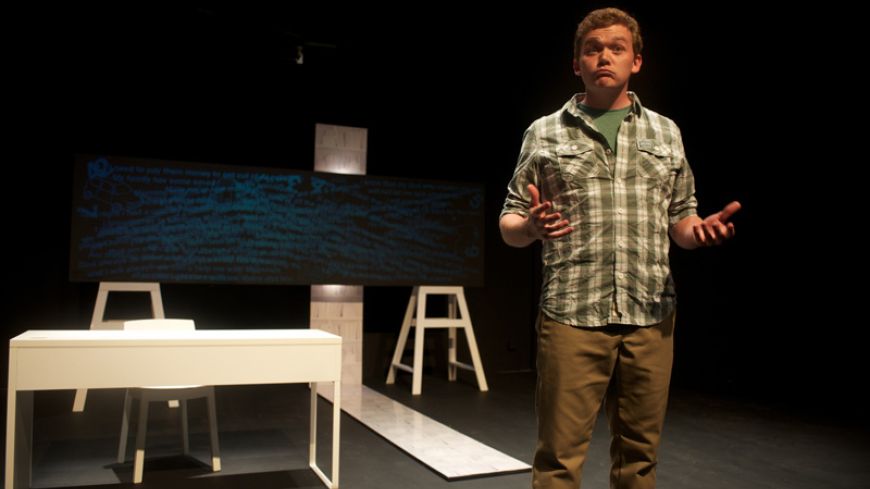
In 2002, aged 18, Joe from Stockport took a six week trip to Uganda during his gap-year. He was visiting his Aunt Maria, a catholic missionary, who warned him to feel no residual guilt – after all, you can’t help everyone. He mentally deleted this message.
The colour, noise and heat of Uganda hit him like a pop-up book as he tried to take it all in: the generosity of these people living in poverty; the crowd-justice that sent desperate thieves rushing to hand themselves in at the local police station, rather than face the angry mobs baying for their blood; the corpse carried to the cemetery on the back of a push-bike; standing in a church full of strangers while everyone told him they loved him and the hands that stretched out to him, pleading for money.
Joe meets a local boy, nearly his age, called Ronnie and they click, they bond. Amid the tourist pursuits of glimpsing elephants and rhinos and white-water rafting down the Nile, Joe meets Ronnie’s family, shares their hospitality and the connection between them is strengthened. Both are the eldest males in a family of younger siblings in which no adult male is present. They share a sense of responsibility to their family and a love of Man United and The Beatles.
Back home, Joe receives a text from Ronnie asking for £20 a month to enable him to continue his education. Reasoning that this only amounts to about 8 pints of beer, he readily agrees. This is the start of what turns out to be a decade of pleas for financial help that Joe can barely afford.
Joe’s story is true and therefore has neither a neat ending nor a fully resolved message or meaning. Joe, throughout his recounting of the texts and emails between him and his ‘brother’, questions his own and Ronnie’s motives, feels guilt and sympathy, is at turns both irritated and moved. He continually asks, ‘what are we thinking?’, inviting the audience to consider the range of possible responses from cynical to trusting. He himself, at different times, has been faced with considering them all.
He tells his story with the help of Ronnie’s text projected onto a wall behind him, accompanied by an actor’s voice who speaks those words verbatim. He has left an empty seat in the front row for Aunt Maria, who he hopes will one day come and see his show. Much of the story is directed to her, apologising for keeping this a secret, knowing that she would not have approved.
Perhaps Maria was right: Ronnie admits he has lied at times and Joe feels a sense of betrayal. But Ronnie did go on to complete his college education through which Joe supported him - and beyond - and they are still friends. Their story is not finished and the issues and contradictions remain. The obscene disparities of wealth that exist throughout the world cannot be solved by the actions of one person alone and it may be true that you can’t help everyone. But Joe, at least, helped someone.
Show runs 2 – 5 October
Read Irene Brown's review of Educating Ronnie at Edinburgh Fringe 2012

